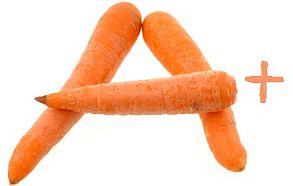Carbohydrate Foods

Carbohydrate Foods
A Blast from the past
Do you remember that old game show (recently revived) that began with each of three people claiming to be the same person—let’s say, that daredevil, Oscar Braveman, who had the distinction of having gone over Niagara Falls in a bathtub and survived. (We don’t recommend that you try this at home!)
A panel of celebrities would query all three “Oscars” about the particulars of his stunt, and based on their answers, try to guess which of the three was the real Mr. Braveman. At the end of the show, the host would say, “Will the real Oscar Braveman please stand up!”
After a bit of suspenseful bobbing up and down by each contestant, the real Oscar would stand up to loud applause.
In the same spirit, I would like to ask, “Will the real carbohydrate please stand up?” In spite of the popularity of low-carb diets, which brought the discussion of carbohydrates out of the nutrition labs and into the mainstream, there seems to be some real confusion about this much-maligned nutrient category.

Here is a little quiz for you.
Can you pick which of the foods in the following list are carbohydrates?
|
a. table sugar b. skim milk c. wheat bran d. pineapple e. pinto beans f. cashews g. honey h. potatoes i. carrots j. cookies |
k. wheat bran l. blueberries m. pasta n. yogurt o. orange juice p. cake q. winter squash r. bagels s. onions |

|
Answer: a. through s. If you said ALL of them, you get an A+! Many times when we think of carbs, we only think of things like pasta and potatoes, but all of the foods on this list are a significant source of carbohydrates. |
 |
Not all carbohydrates are created equal.
Scientifically speaking, carbohydrates are organic compounds that can be divided into three groups—sugars, starches and fiber. Another way of saying this is that there are “simple” carbohydrates and “complex” carbohydrates.
Simple carbs are the sugars we eat, whether naturally, such as in fruits, or as an added component in other foods. The complex carbohydrates are starches and fibers. Starches are stored by the plants that we eat, and so, come almost exclusively from plant foods. Fibers make up the structures of plants and are classified as soluble fiber and insoluble fiber.
Glycemic Index
You may also have heard of something called the “Glycemic Index” with relation to carbohydrates. This is a list of foods that have been ranked from high to low according to how fast the food turns into glucose and gets into your bloodstream, and thus affects your insulin levels. So-called "high glycemic" foods such as pure sugar, white flour, sweet fruits, starchy vegetables, etc. are at, or near, the top of the index and are the real no-nos of the low-carb diets.
This is where the confusion comes in.
Because carbs have gotten such a bad reputation in recent years, you may not understand that many carbohydrate foods are actually good for you. More than that, you need carbohydrate foods in order to have energy and to get all of the vitamins, minerals and fiber that your body needs to be healthy and feel good. You will also find that most of the protective substances—the phyto-nutrients—are found in carbohydrate foods.
Helpful hint: If you eat the higher glycemic carbs with a bit of fat and protein, they will digest more slowly and not affect your insulin levels as drastically. For instance, if you eat fruit with cheese or nuts as a snack, you will get the benefit of the fruit without drastically affecting your insulin levels.
In addition, if your diet is out of balance with too much protein and fat, and not enough carbs, you may have symptoms such as a headache, bad breath, and even muscle weakness, lack of energy and mental confusion.
While it is a good idea to avoid the empty calories of carbs such as table sugar and white flour, and it certainly doesn’t hurt to be aware of how even nutritious foods can affect your insulin levels, there are a lot of excellent carbohydrate foods—even high glycemic ones—for you to choose from.
In fact, many nutritionists suggest that to eat healthy you should maintain a 40%-30%-30% balance of carbohydrates, protein and fats respectively. Rather than avoiding carbs, just be sure that you are more often choosing the good carbs—fruits, vegetables, legumes and whole grains—and limiting your intake of sugar and white flour products.
I highly doubt that anyone named Oscar ever went over Niagara Falls in a bathtub—surely an impossibility! However, I did manage "to tell the truth" about carbs and their importance in a healthy eating lifestyle.
Eat and be healthy with my best regards,


